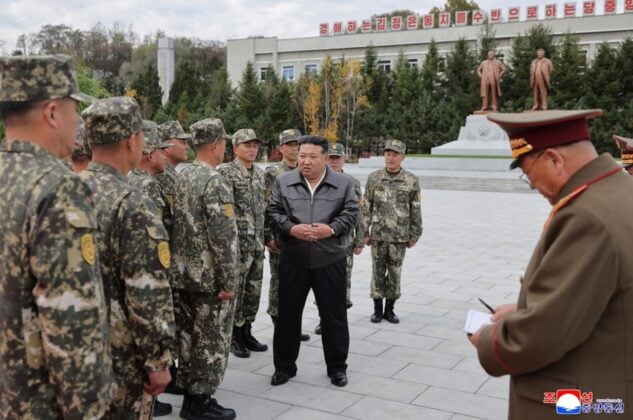
South Korea’s National Intelligence Service (NIS) has confirmed that North Korea has begun transferring thousands of military personnel to Russia, in what appears to be a growing partnership between Pyongyang and Moscow amid the war in Ukraine.
According to a closed-door briefing delivered to South Korea’s National Assembly Intelligence Committee on November 4, the NIS reported that about 5,000 soldiers from North Korea’s construction units have been moving to Russia since September, with deployments expected to continue over the coming months. The personnel are reportedly being assigned to infrastructure reconstruction work in Russian-occupied territories.
In the same report, the agency said nearly 10,000 North Korean troops were already stationed near the Russia–Ukraine border, tasked with performing security and guard duties. The NIS added that an additional 1,000 combat engineers have been sent to conduct mine clearance operations in the region.
“The North is maintaining training programs and personnel selection in anticipation of further troop dispatches,” the agency said, according to committee briefings shared by lawmakers Park Sun-won of the Democratic Party and Lee Sung-kwon of the ruling People Power Party.
The intelligence service also highlighted growing concerns about Pyongyang’s weapons development cooperation with Russia, noting progress in nuclear and missile programs, as well as rapid advances in drone technology. “The solid-fuel ICBM Hwasong-20 displayed during the recent parade features a lighter airframe and an upgraded propulsion system compared to the Hwasong-19,” the NIS told lawmakers, adding that the missile’s enlarged warhead section could enable multiple warhead deployment.
The agency further assessed that North Korea is improving the guidance precision of its missiles with Russian assistance, and warned that its unmanned aerial vehicle (UAV) program is advancing quickly, posing a growing security risk to the region. However, the NIS noted that projects such as hypersonic missiles, reconnaissance satellites, and destroyer-class ships remain in early stages of development and “will require considerable time” before achieving operational capability.
The report also cited frequent visits to Russia by senior North Korean munitions officials, which the NIS is monitoring closely for potential technology transfers. These exchanges, intelligence officials said, could expand North Korea’s access to precision guidance and engine technologies long restricted by international sanctions.